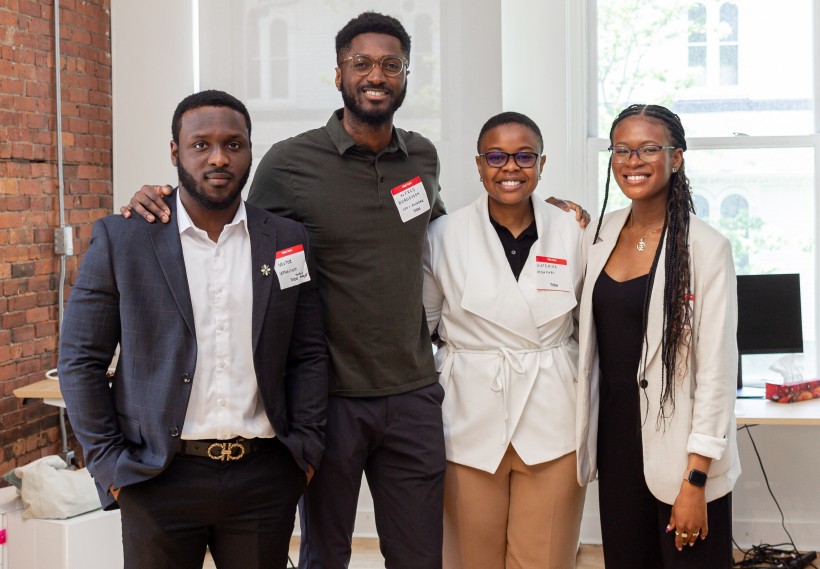Halifax-based Tribe Network, which offers national startup support services to BIPOC entrepreneurs, is expanding into venture capital in a move CEO Alfred Burgesson said is aimed at offering founders the chance to work with investors who better understand their specific needs and challenges.
Tribe is raising a $20 million fund called Tribe Ventures that will back pre-seed and seed-stage racialized founders across the country. Burgesson is targeting a first close by the end of this year and added that the fund will be largely sector-agnostic.
The announcement comes six months after he hinted during a panel discussion hosted by the New Brunswick Innovation Foundation that Tribe could start inking equity funding deals.
“There are entrepreneurs in our network that are venture scaleable and are successfully getting funded, and the rounds are being led by Black-led firms,” said Burgesson. “But there’s not a lot of (Black VC firms), and they can’t fund every Black entrepreneur.
“And so we’re noticing lots of momentum, we’re noticing lots of interest and success, but we’re still noticing a big gap in the Canadian ecosystem.”
Tribe is aware of just two venture capital funds nationally that specialize in backing Black entrepreneurs — Toronto’s BKR Capital and Black Opportunity Fund — and another two that specifically work with Indigenous founders — Raven Indigenous Capital Partners out of Vancouver and the National Aboriginal Capital Corporations Association.
While data about the racial makeup of the Canadian VC market is scarce, in the United States, less than 1 percent of the US$543 billion of VC funding raised by startups in the latter half of the 2010s went to Black founders, according to Crunchbase.
“Racialized investors and racialized managers are more likely to invest in racialized founders,” Burgesson said. “People like to invest in what they know. And so if White investors don't understand the lived experience of racialized founders, it's going to be much harder for them to resonate with the problems they're trying to solve.
“By ensuring that our team is racialized and diverse, we know that we are going to be in a better position to vet the ideas and the innovations that racialized communities are coming forward with.”
Burgesson expects the Tribe Ventures' limited partners to be a mix of government and institutional investors. He is particularly interested in the federal government’s Social Finance Fund — a $755 million fund of funds that aims to back charities, non-profits and social ventures.
He also said part of the value proposition Tribe plans to offer its portfolio companies is access to the broader startup support system and innovation community partnerships Tribe has forged. The organization has already made several successful introductions between founders and investors.
In total, Tribe Network now has more than 800 members and has worked with about 300 entrepreneurs in the past year.










